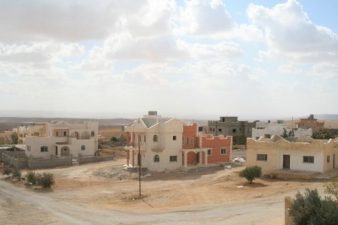 Does circumcision offer health benefits? A medical historian I spoke with says yes, it does. She’s now working in Africa with Zulus.
Does circumcision offer health benefits? A medical historian I spoke with says yes, it does. She’s now working in Africa with Zulus.
It was a tradition long ago practiced. Now Zulu tribes in Africa are returning to the Jewish custom of male circumcision to reduce the spread of AIDS. In California where calls to ban circumcision are being made, I interview an epidemic historian on why this custom might save Africa. For women grappling with the decision to circumcise or not, this NY Times article gives some additional advice.
While San Francisco politicians debate the necessity of the male foreskin removal rite, citing human rights concerns, Zulu King Goodwill Zwelethini of KwaZulu-Natal nods his head, pictured above. The tribal leader of KwaZulu-Natal, a province of 10 million people in South Africa, recently rescinded a 200-year-old ban on the age-old practice of male circumcision, still conducted in many regions in Africa, after seeing the evidence on the spread of AIDS. Some estimates suggest than more than half of all HIV infections could be stopped if men are circumcised. Very conservative estimates are one in 10.
“Circumcision is one of the interventions that reduce the risk of transmission,” says Maureen Malowany, a medical historian grounded in evidence-based medicine. The Canadian-Israeli woman has started volunteering for the Jerusalem AIDS Project (JAIP), and since March has traveled there twice to help train Zulu medical personnel in the practice of male medical circumcision.
So compelling is the evidence of circumcision as a protection against AIDS that physicians there are all but competing to remove the highest number of foreskins per day, Malowany tells ISRAEL21c. Learning the age-old practice from top-notch Israeli surgeons and nurses, some 100 trained doctors and nurses in South Africa have so far taken their skills back to their own hospitals. Up to 50 circumcision operations can be performed per surgeon, per day, according to the protocol.
“The evidence,” says Malowany “is always about context and good science. KwaZulu-Natal has a huge HIV/AIDS challenge. If the government and the king are willing to stand up and say that ‘our men need to be circumcised,’ then that’s a pretty good argument for delivering male adult circumcision.”
Ancient Jewish practice a modern need
Among Jews, baby boys are circumcised on the eighth day of life, in accordance with a biblical commandment. Muslims circumcise their sons by age six, also in keeping with religious tradition. But as a medical practice, removing the foreskin has been found to dramatically reduce HIV transmission based on scientific studies, including three controlled trials in Uganda, Kenya and South Africa in 2007.
(Male circumcision is not to be confused with female circumcision, which mutilates the female genitalia by removing the clitoris partly or entirely. Jewish Israeli doctors are against this practice, although it is still reportedly done in some Bedouin communities in Israel.)
Working in Africa by invitation only, volunteer doctors and nurses under the Israeli umbrella group Operation Abraham, as part of the JAIP project, have twice traveled to Saint Mary’s Hospital in KwaZulu-Natal to teach high-volume male circumcision. The team at the clinic in the region of Durban includes Zulus, Muslims and Hindus, making it an extraordinary experience, Malowany relates.
More than two decades of AIDS education
The impact factor of this org is in the millions. In Latin America, Israeli HIV/AIDS education has become part of the school curriculum in some countries. The all-volunteer has set a model for educating citizens of developing nations on how to stay protected from the deadly HIV virus.
Since its early beginnings in 1986, the NGO has worked locally in Jerusalem, nationally in Israel and internationally through materials utilized in about 30 countries, in coordination with groups such as the World Health Organization and UNAIDS. JAIP was commended by the United Nations in 2006 for its approach.
Not long ago, founder Dr. Inon Shenkar returned from Myanmar, where he trained AIDS educators. It’s his mission, he tells me, to show that Israel is much more than a country in conflict.
One of the special projects he has helped developed employs icon-based flashcards carried by backpackers wherever they roam. When they encounter villagers on their travels, they show the cards and explain via smiles and images how the virus spreads, and how to prevent contracting it.
In Africa, JAIP is active in Swaziland, Ethiopia, Senegal, Uganda and South Africa.
More funds are being sought to continue circumcision training in KwaZulu-Natal. The group also has invitations from Uganda and Swaziland, where JAIP ran pilot training sessions in 2007 to 2008.
“If 100 doctors could circumcise 1,000 men every month, for every 10 we could avert one case of HIV,” says Malowany. “For conservative estimates, that is 5,000 people in KwaZulu-Natal.”
Read more about religious traditions that help human health:
ARC Revives Faith in Food
The Muslim Festival of Meat?
Repair Your Eating Habits for Yom Kippur
This article was first published on ISRAEL21c – www.israel21c.org.




i want to remove foreskin its very tight,can you help me
The medical advantages of circumcision have also been strongly demonstrated in other trials. What’s clear to me is that depending on what side of the coin a person falls on, they will find a reason to support their opinion for or against male circumcision.
From the USAID report “LEVELS AND SPREAD OF HIV SEROPREVALENCE AND ASSOCIATED FACTORS: EVIDENCE FROM NATIONAL HOUSEHOLD SURVEYS”
“There appears no clear pattern of association between male circumcision and HIV prevalence—in 8 of 18 countries with data, HIV prevalence is lower among circumcised men, while in the remaining 10 countries it is higher.”
http://www.measuredhs.com/pubs/pdf/CR22/CR22.pdf
The South African National Communication Survey on HIV/AIDS, 2009 found that 15% of adults across age groups “believe that circumcised men do not need to use condoms”.
http://www.info.gov.za/issues/hiv/survey_2009.htm
From the committee of the South African Medical Association Human Rights, Law & Ethics Committee :
“the Committee expressed serious concern that not enough scientifically-based evidence was available to confirm that circumcisions prevented HIV contraction and that the public at large was influenced by incorrect and misrepresented information. The Committee reiterated its view that it did not support circumcision to prevent HIV transmission.”
The one randomized controlled trial into male-to-female transmission showed a 54% higher rate in the group where the men had been circumcised btw:
http://www.thelancet.com/journals/lancet/article/PIIS0140-6736(09)60998-3/abstract
ABC (Abstinence, Being faithful, and especially Condoms) is the way forward. Promoting genital surgery will cost African lives, not save them.